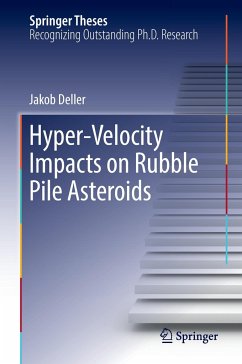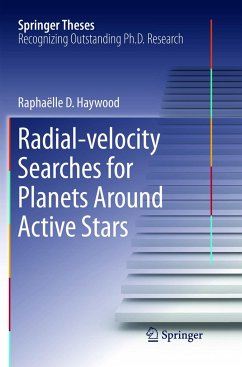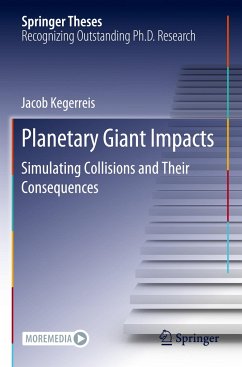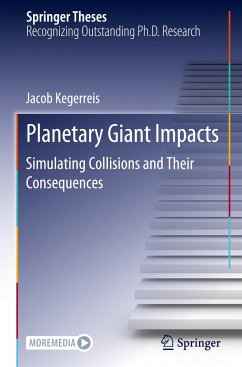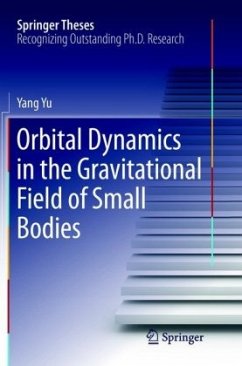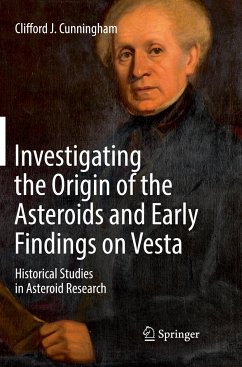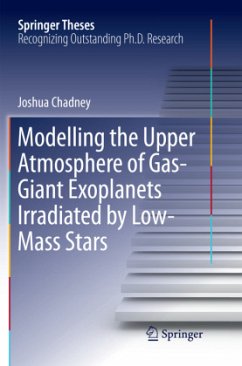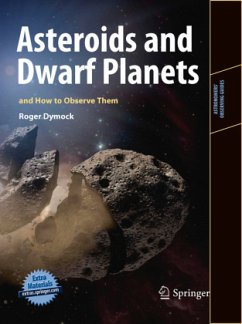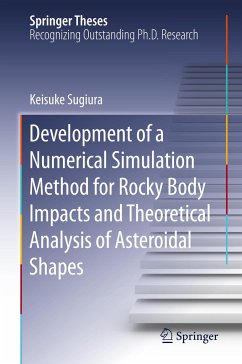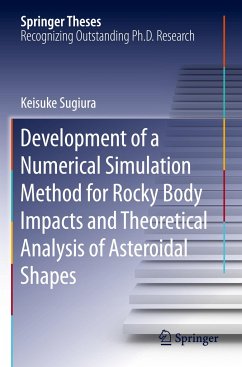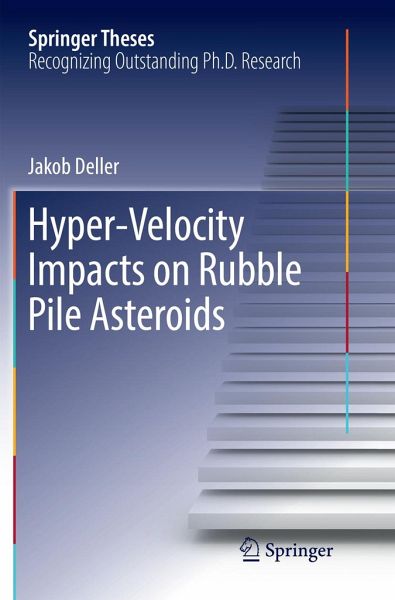
Hyper-Velocity Impacts on Rubble Pile Asteroids
Versandkostenfrei!
Versandfertig in 6-10 Tagen
76,99 €
inkl. MwSt.
Weitere Ausgaben:

PAYBACK Punkte
38 °P sammeln!
The thesis presents a tool to create rubble pile asteroid simulants for use in numerical impact experiments, and provides evidence that the asteroid disruption threshold and the resultant fragment size distribution are sensitive to the distribution of internal voids. This thesis represents an important step towards a deeper understanding of fragmentation processes in the asteroid belt, and provides a tool to infer the interior structure of rubble pile asteroids. Most small asteroids are 'rubble piles' - re-accumulated fragments of debris from earlier disruptive collisions. The study of fragmen...
The thesis presents a tool to create rubble pile asteroid simulants for use in numerical impact experiments, and provides evidence that the asteroid disruption threshold and the resultant fragment size distribution are sensitive to the distribution of internal voids. This thesis represents an important step towards a deeper understanding of fragmentation processes in the asteroid belt, and provides a tool to infer the interior structure of rubble pile asteroids. Most small asteroids are 'rubble piles' - re-accumulated fragments of debris from earlier disruptive collisions. The study of fragmentation processes for rubble pile asteroids plays an essential part in understanding their collisional evolution. An important unanswered question is "what is the distribution of void space inside rubble pile asteroids?" As a result from this thesis, numerical impact experiments can now be used to link surface features to the internal structure and therefore help toanswer this question. Applying this model to asteroid Steins, which was imaged from close range by the Rosetta spacecraft, a large hill-like structure is shown to be most likely primordial, while a catena of pits can be interpreted as evidence for the existence of fracturing of pre-existing internal voids.





